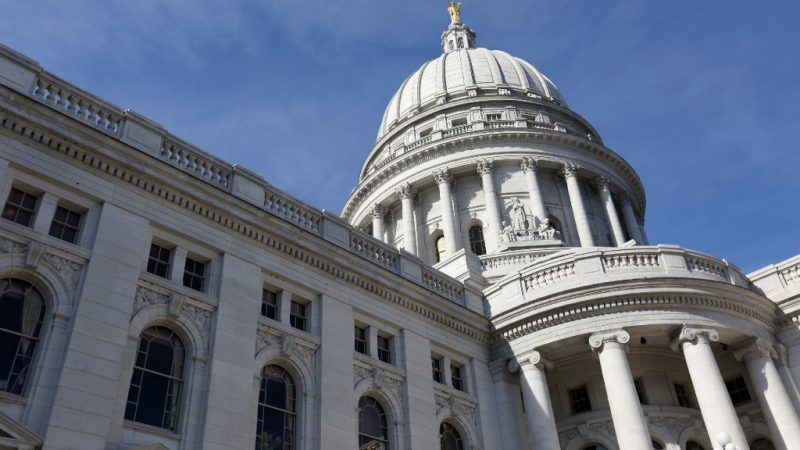Republican lawmakers backed a proposal before a Senate panel that would amend the state’s constitution to prevent guvs from using their powerful line-item veto authority to increase spending.
But Dems at the hearing Tuesday argued the Legislature’s veto override power was a sufficient check on the guv’s veto pen.
And a spokeswoman for Gov. Tony Evers charged Republicans were “upset the governor used his broad veto authority to provide more money to our schools.”
“Instead of devoting all their time and energy toward trying to override the will of the people and seeking political retribution for an election that happened almost a year ago, Republicans should get to work on the pressing issues facing our state,” said spokeswoman Britt Cudaback.
>> WisPolitics is now on the State Affairs network. Get custom keyword notifications, bill tracking and all WisPolitics content. Get the app or access via desktop.
The proposal before the Senate Insurance, Financial Services, Government Oversight and Courts Committee Tuesday was introduced after Evers in July used his partial veto authority to pump nearly $87 million more into the state budget for per-pupil school aid than what Republicans had proposed.
Though Senate Majority Leader Scott Fitzgerald said in the immediate aftermath of Evers’ vetoes that “it’s fine for the governor to make that call” on education funding, the move incensed some of the more conservative members of the GOP legislative caucus.
Less than a week after the vetoes, Sen. David Craig, R-Big Bend, and Rep. Mike Kuglitsch, R-New Berlin, released the proposal, calling for lawmakers begin the process of amending the constitution “to right-size the governor’s veto pen to protect taxpayers and restore the Legislature’s constitutional authority.”
Craig Tuesday continued to press that cause, accusing Evers of “striking into the Legislature’s sphere of authority” with his July veto.
“I think that was a usurpation of what should be a core authority of the Legislature,” he said.
But Craig noted Evers was not the first to use his veto pen to boost spending. He said governors of all political stripes, including former Republican Gov. Scott Walker, have been “very creative with the authority.”
The panel’s two Dems, Sens. Fred Risser of Madison and Lena Taylor of Milwaukee, argued the Legislature’s veto override authority provided a mechanism for lawmakers to invalidate gubernatorial vetoes without changing the constitution. A veto override requires a two-thirds majority in both houses.
“Do you believe that the ability to override the governor is not sufficient enough power for the Legislature?” Taylor asked during a testy exchange with Craig.
He fired back that a veto override was a “solution” provided by the constitution.
“We as legislators, however, should also observe the portions of the constitution that allow us to act and allow the people of Wisconsin to act if they believe that one of the branches of government has exceeded its authority, which I believe is the case here,” Craig said.
Risser also raised concerns that a “vindictive Legislature” could cut funding for agencies it disagreed with politically or the salaries of judges who ruled against the majority party, warning the proposal would prevent a future governor from addressing that situation.
Craig was not immediately able to recall if the constitution protected salaries.
“But again, this is an amendment that will pass here, presumably, and go to the people and the people will have a direct voice on what occurs,” he said.
The proposal has 13 Republican cosponsors in the Senate and 20 in the Assembly. No Dems from either chamber have signed on in support.
In order to change the state’s constitution, the amendment would need to pass in two consecutive legislative sessions before going to a ballot referendum.
See Craig and Kuglitsch’s July statement:
https://www.wispolitics.com/wp-content/uploads/2019/07/190709-Craig.pdf
See the amendment:
https://docs.legis.wisconsin.gov/2019/proposals/reg/sen/joint_resolution/sjr59


